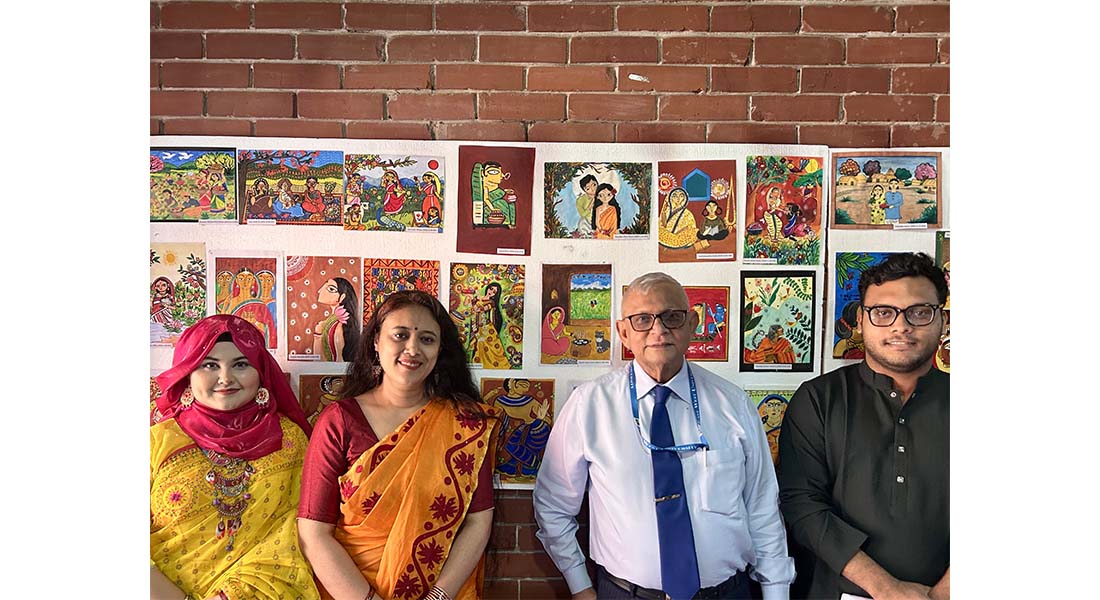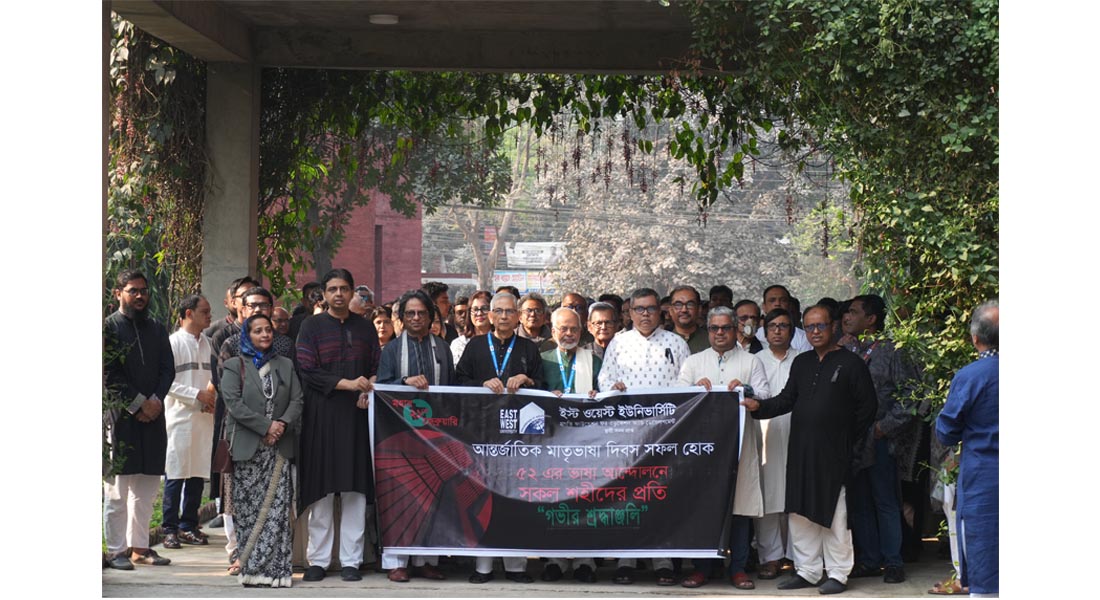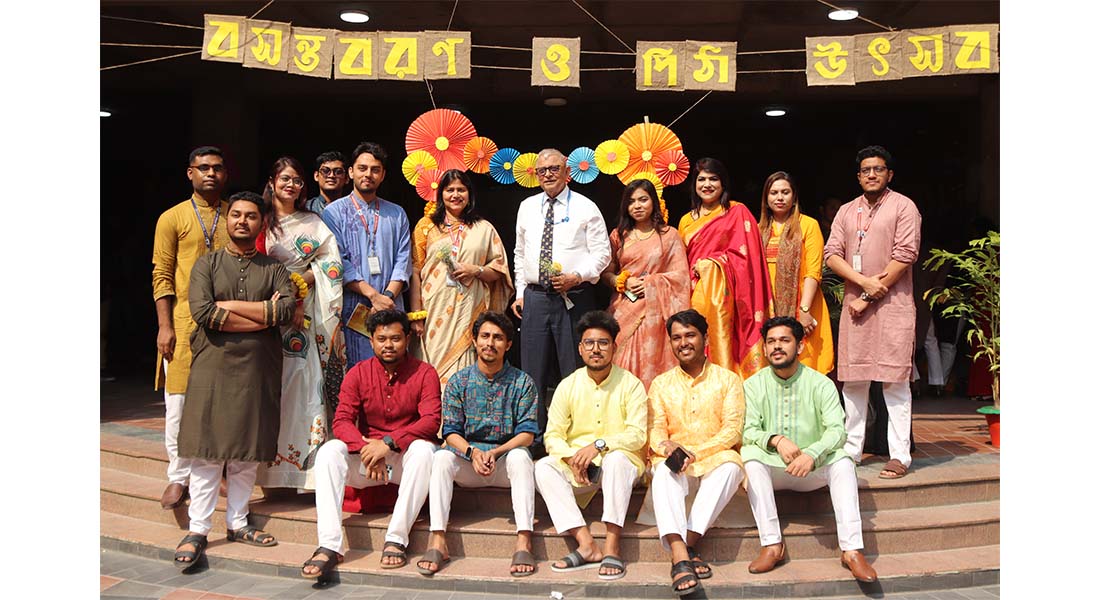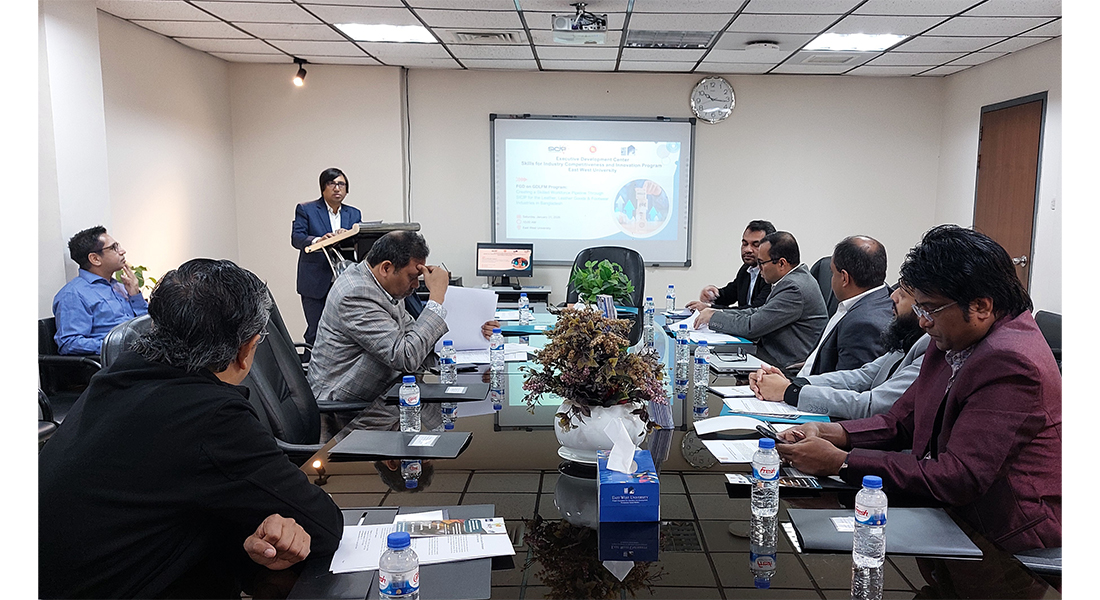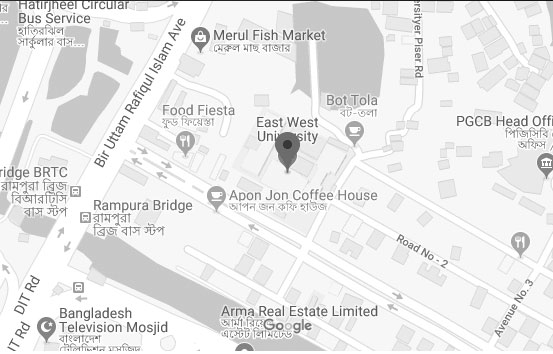Roundtable Discussion on Sustainable AI in Industry 5.0 with Industry Leaders
Nov 11, 2024
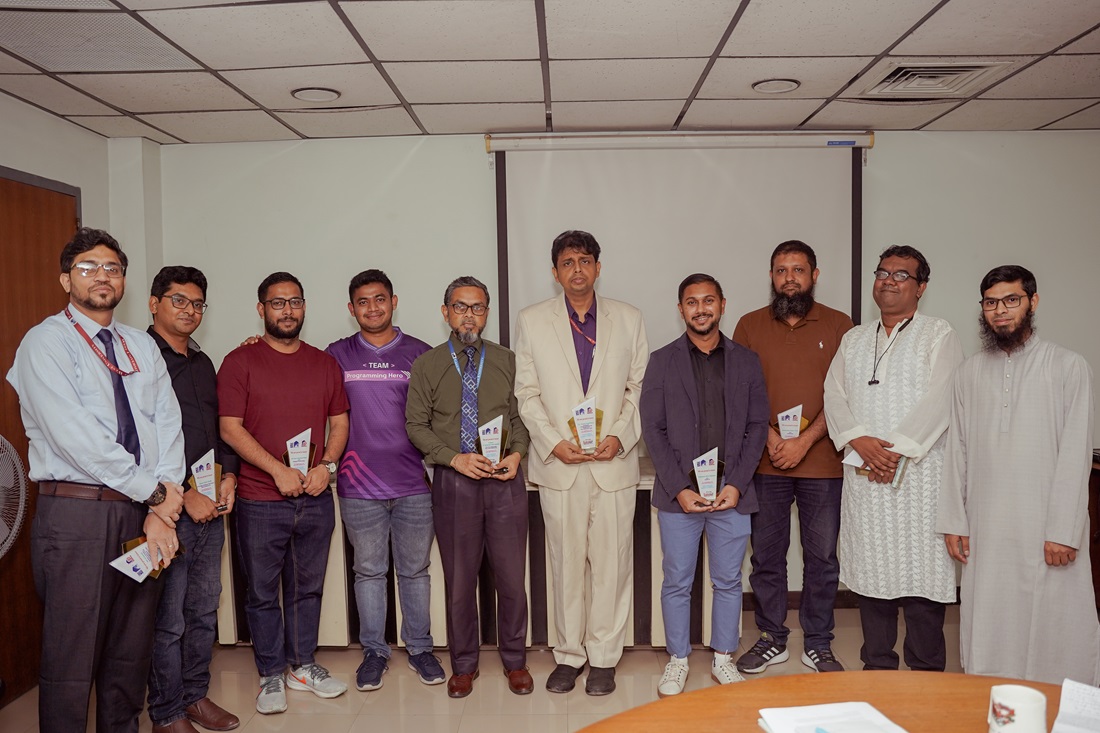
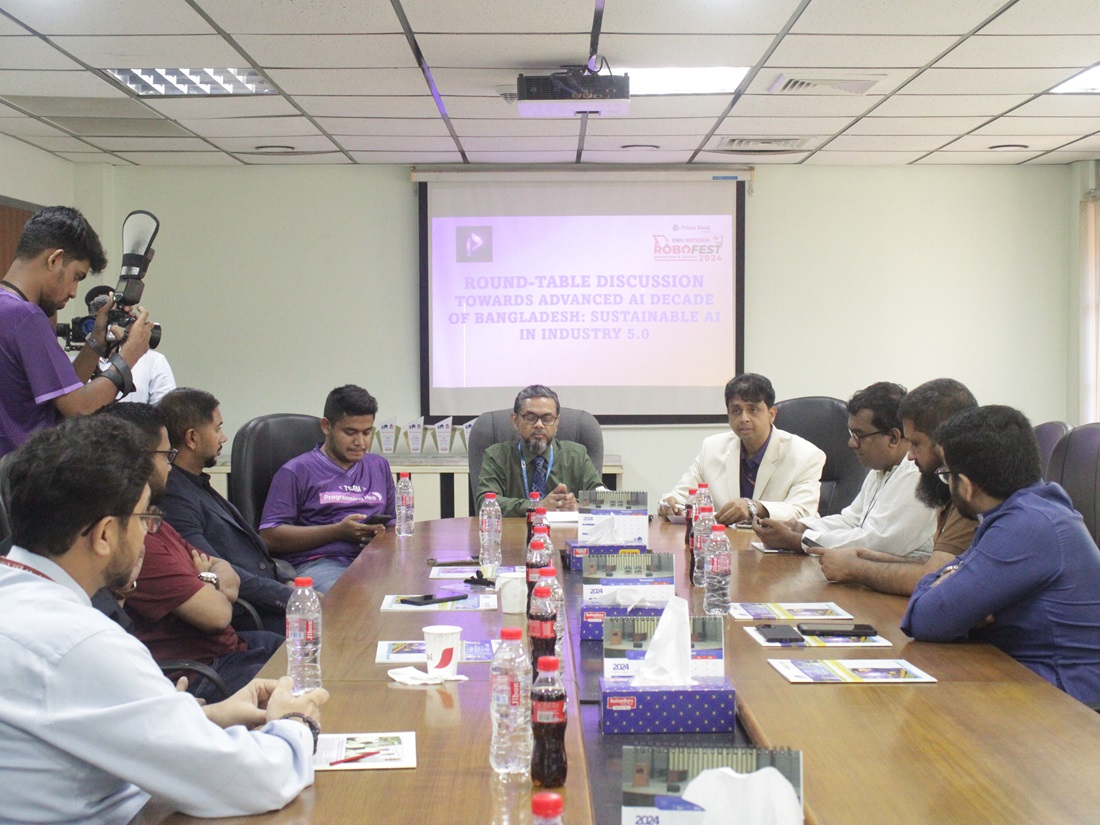
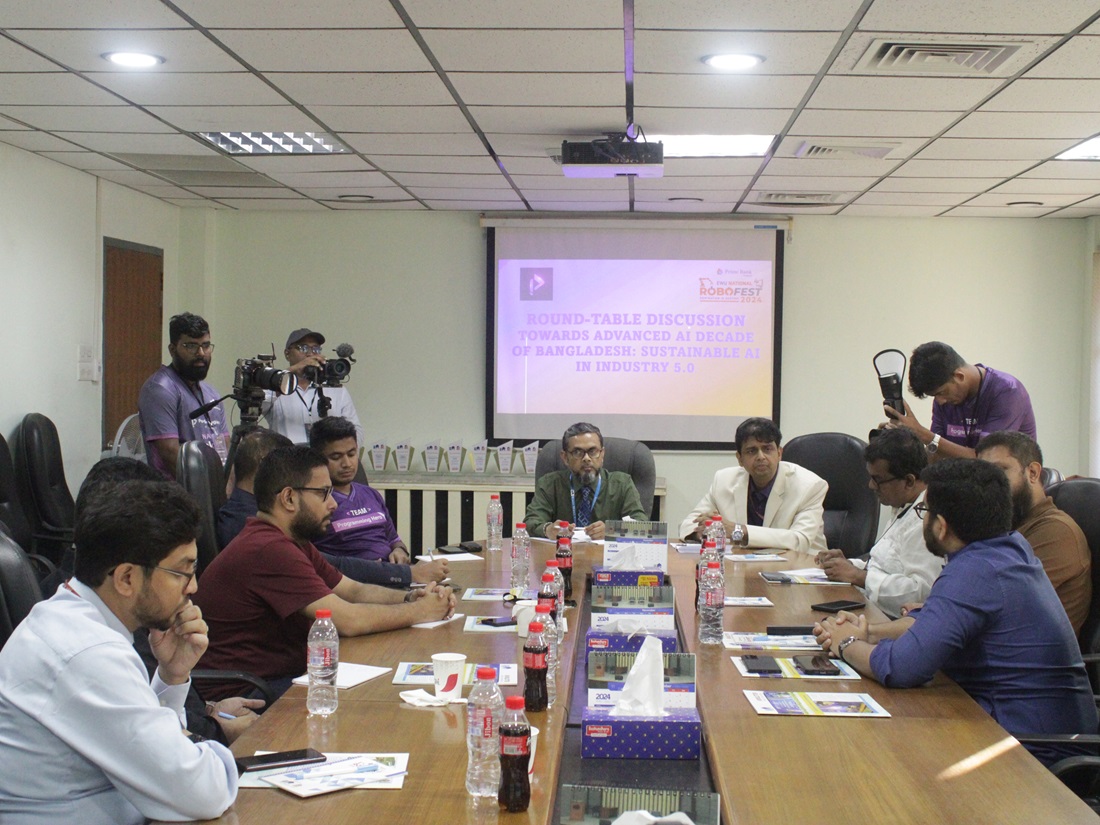
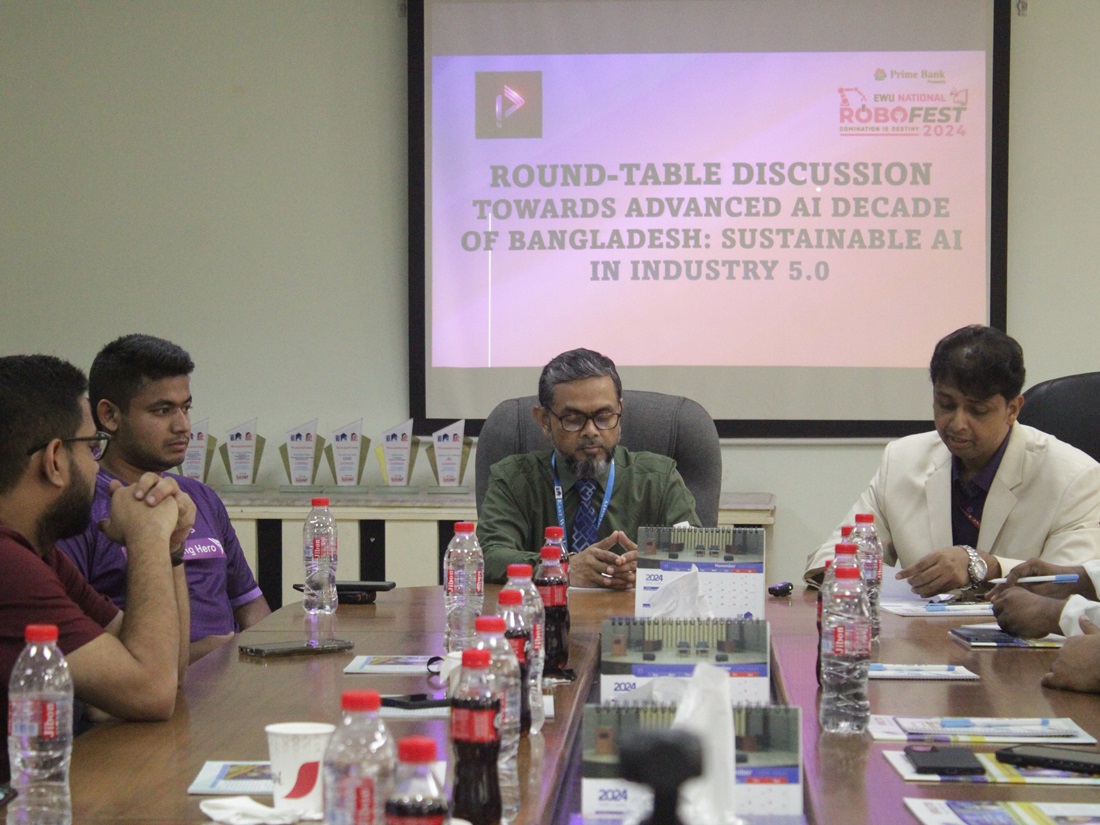
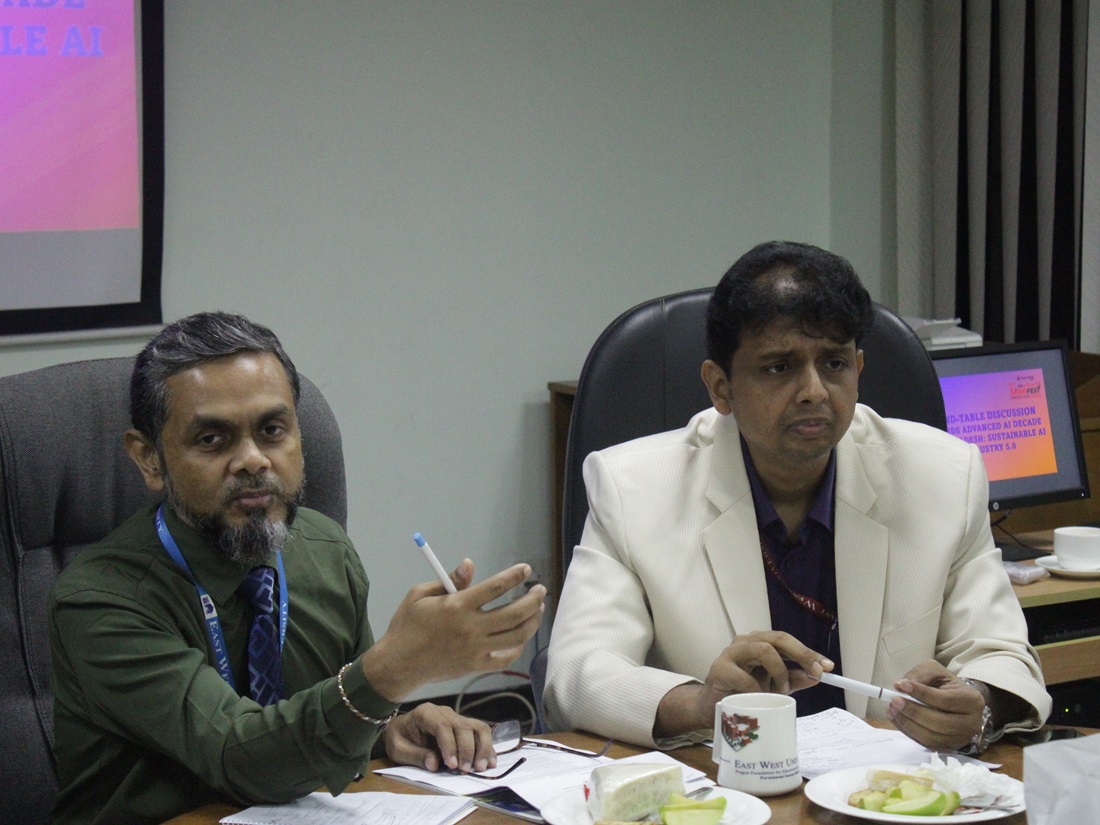
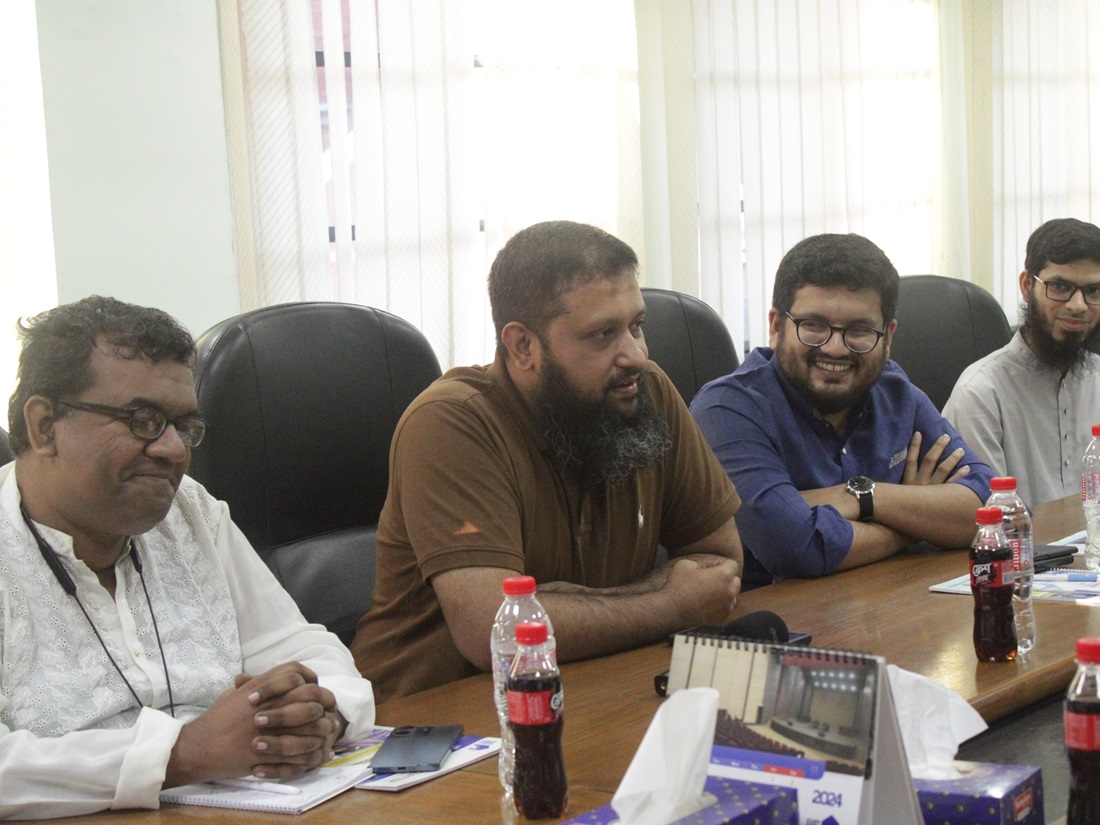
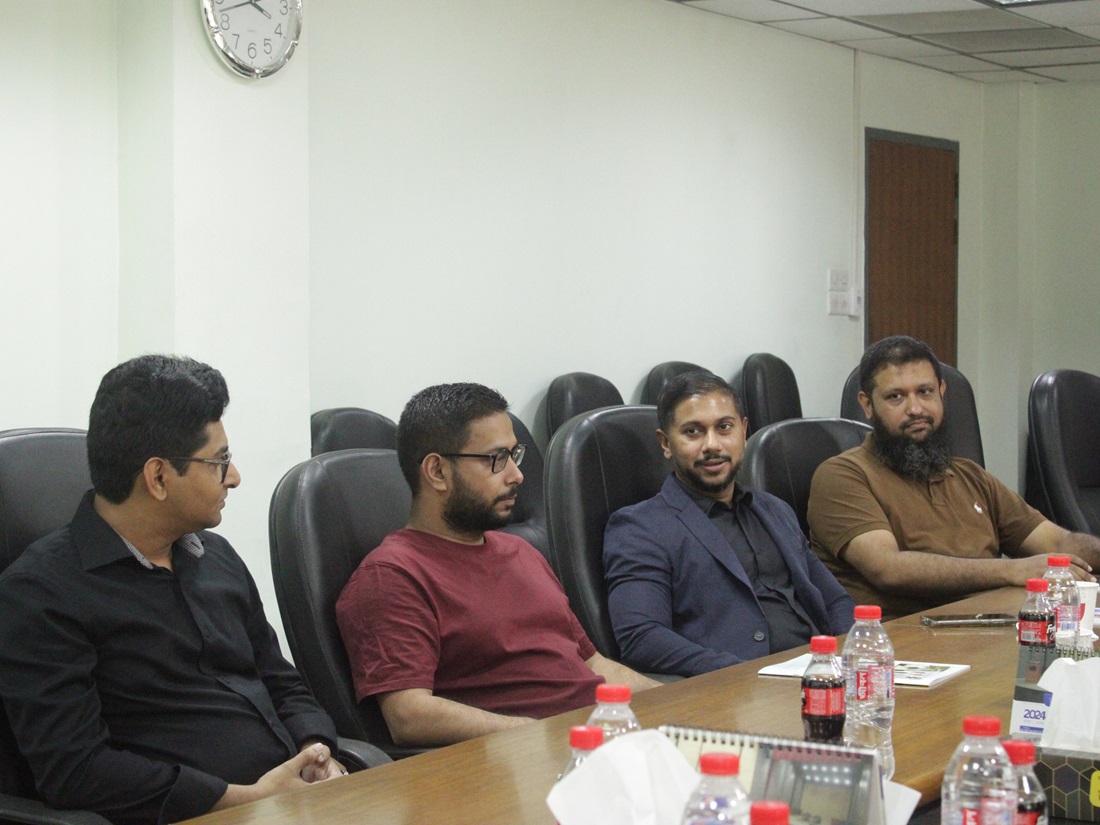
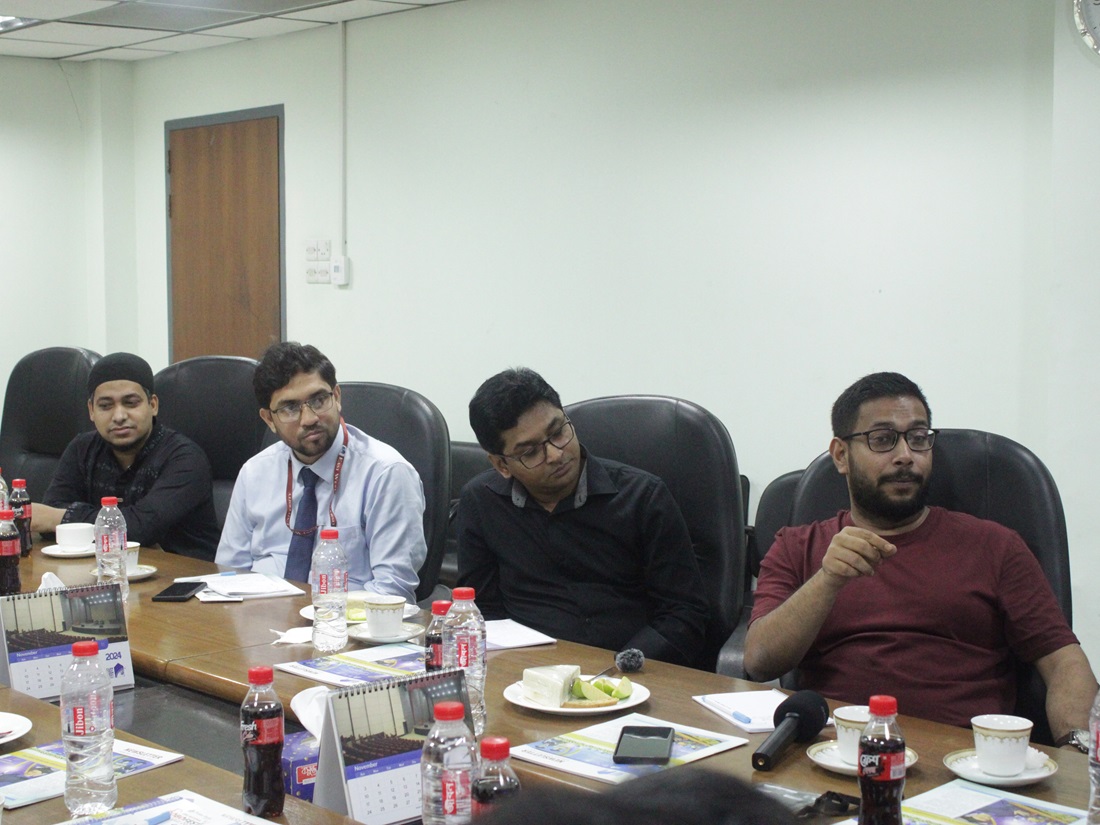
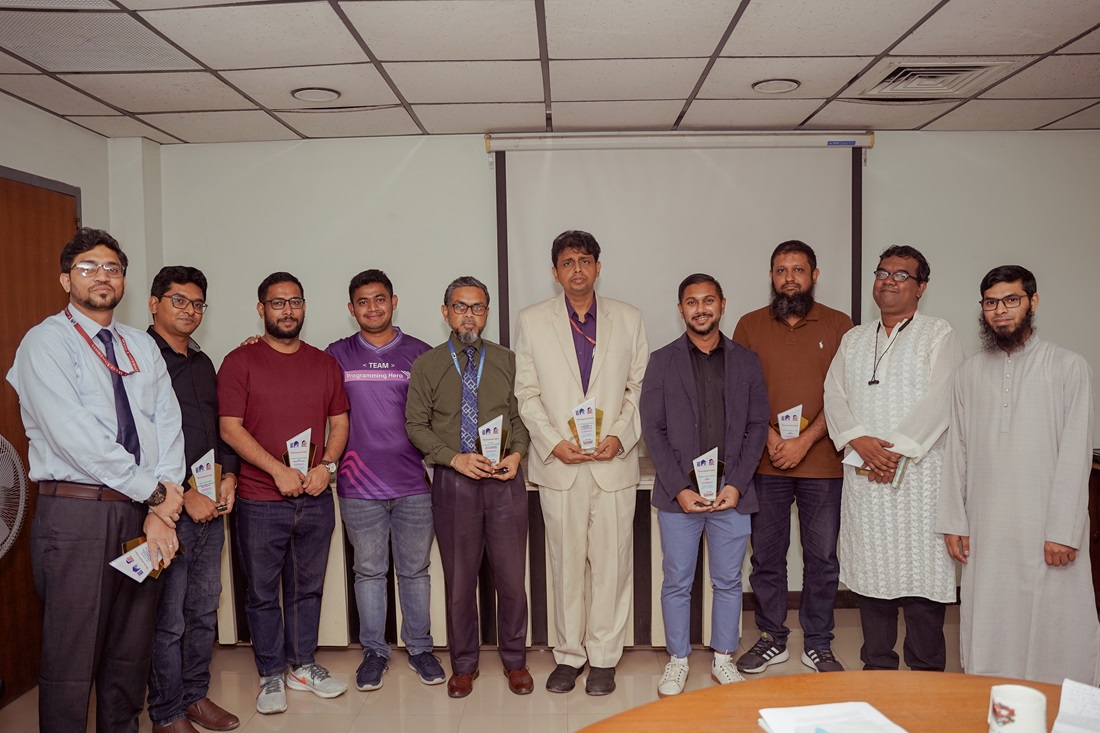
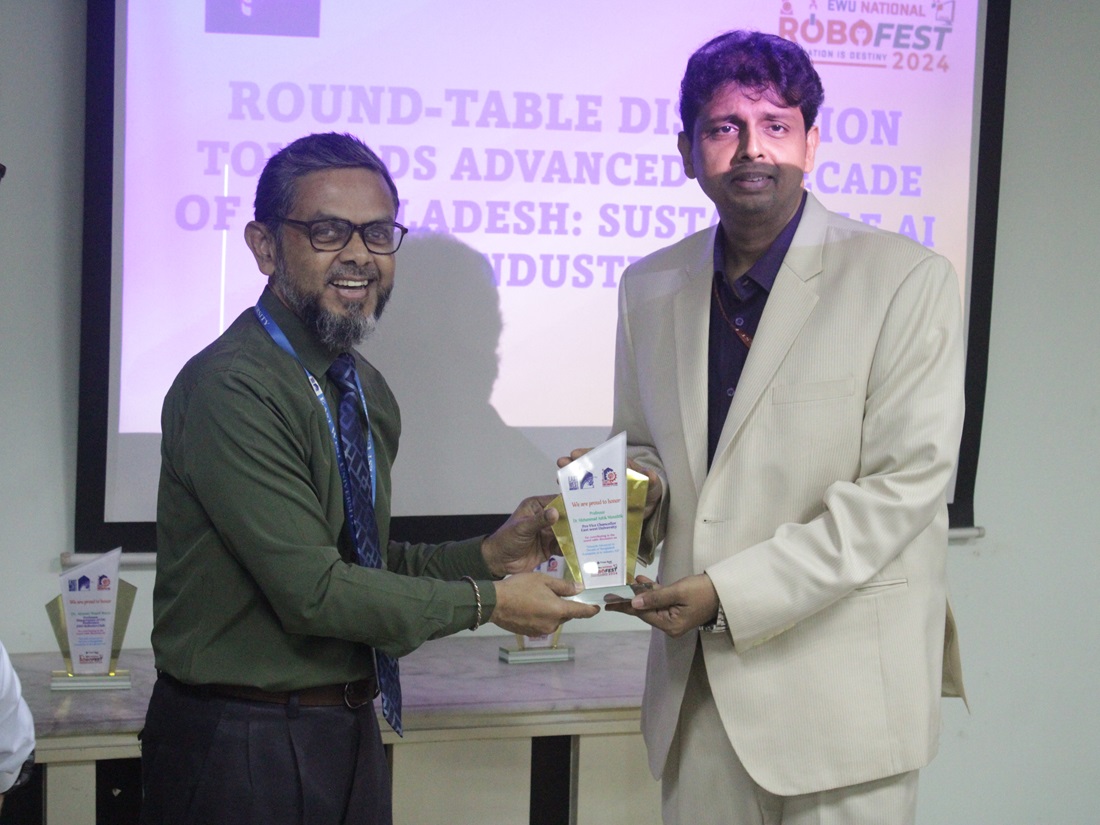
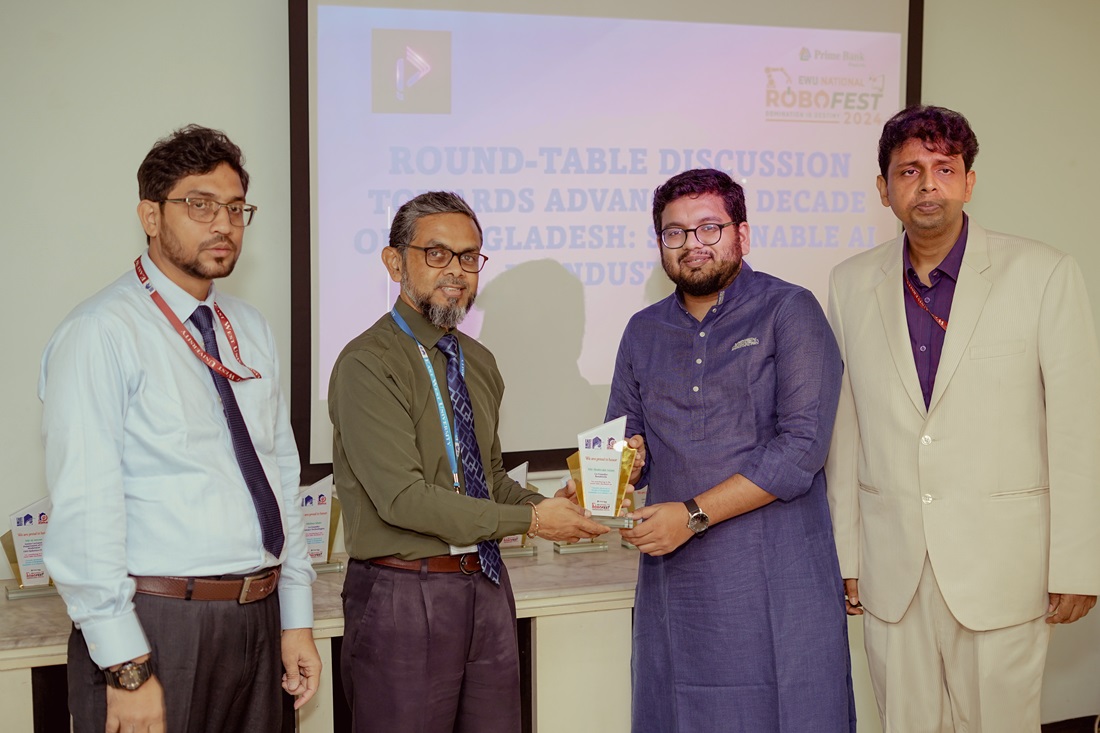
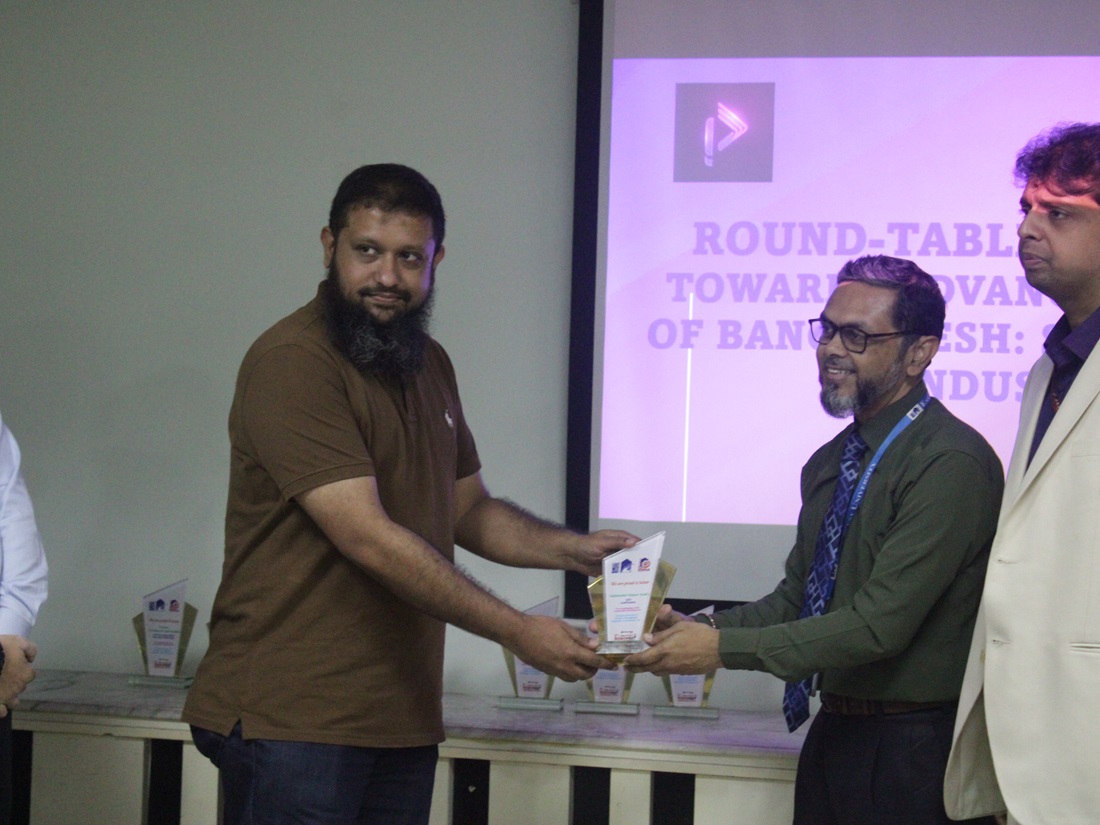
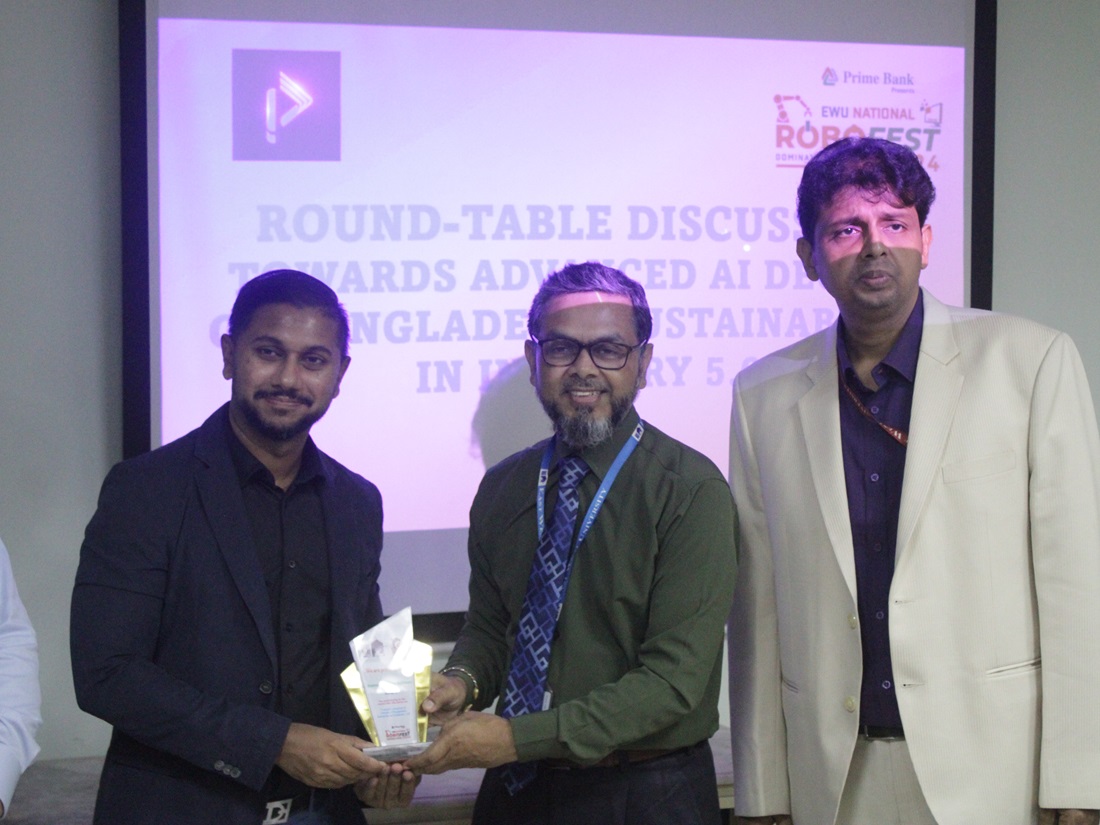
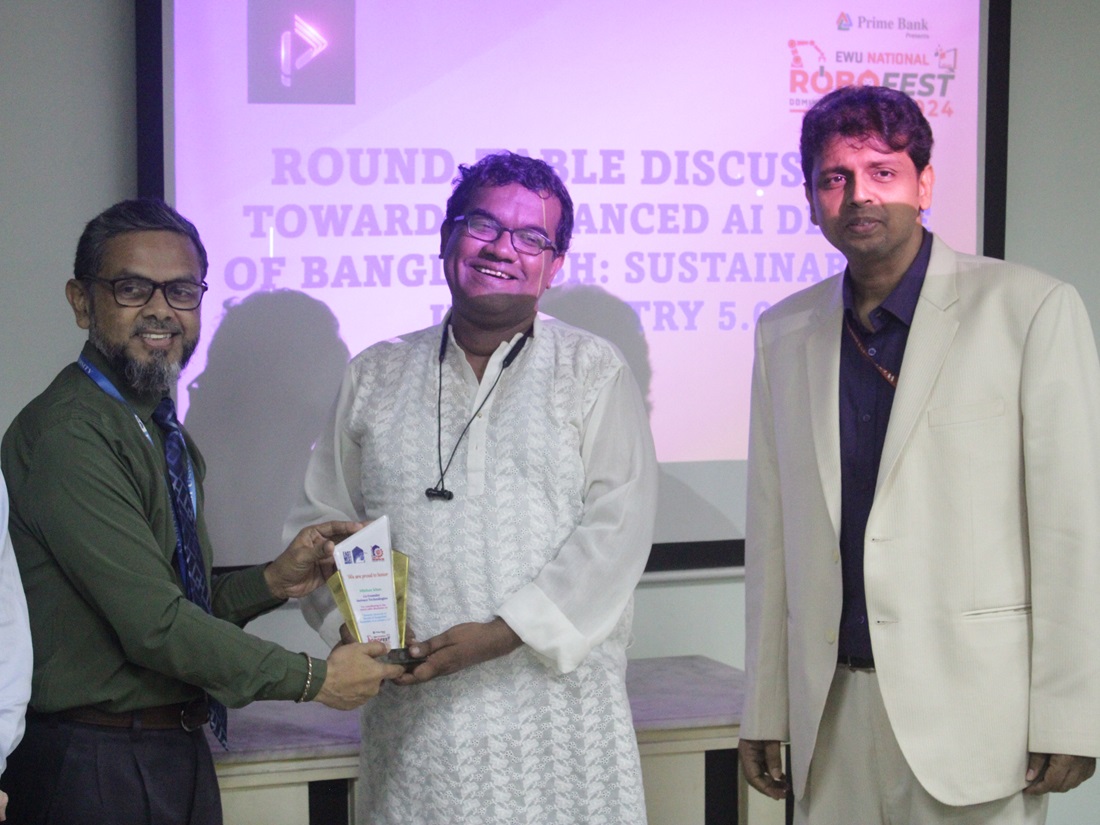
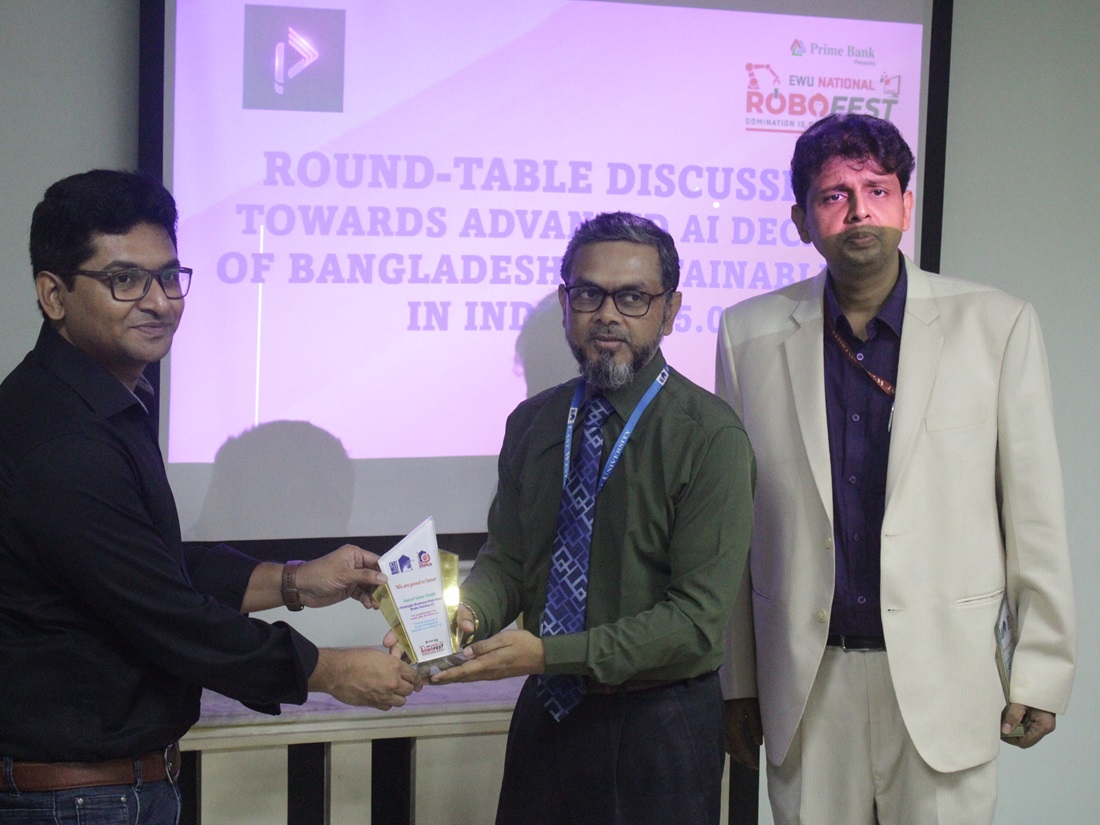
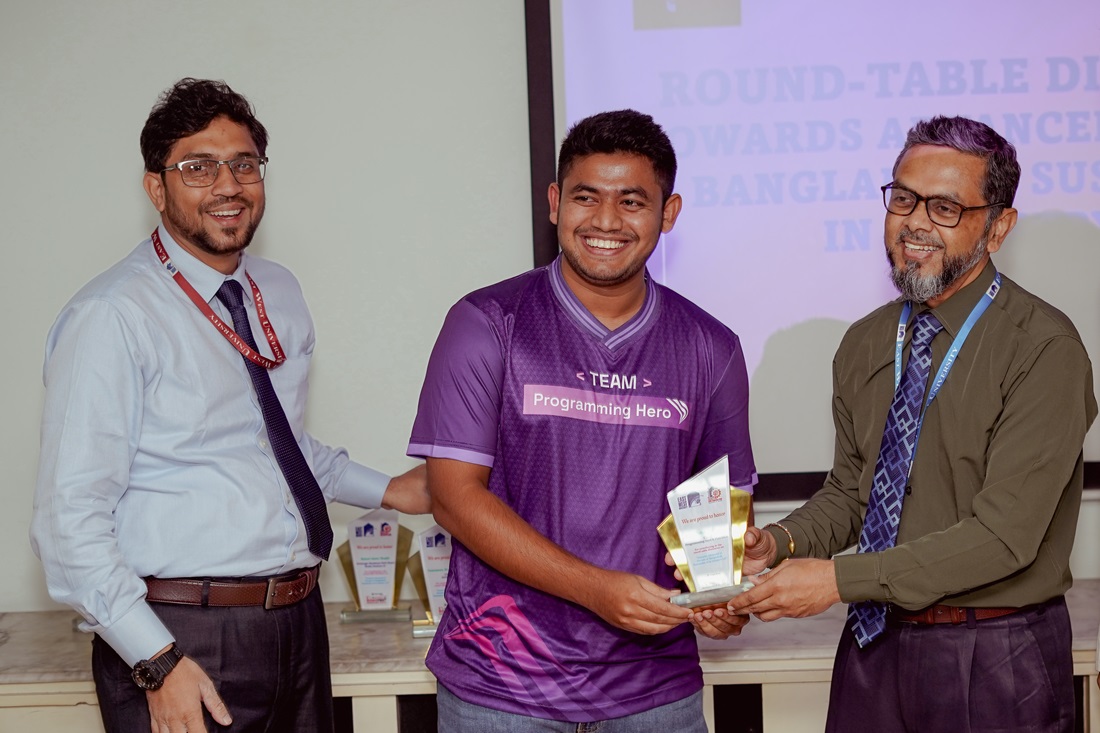
At the East West University (EWU) National RoboFest 2024, the EWU Robotics Club held a roundtable discussion with industry leaders titled “Towards Advanced AI Decade of Bangladesh: Sustainable AI in Industry 5.0.”
This roundtable discussion aimed to examine the role of Artificial Intelligence (AI) in driving the Fifth Industrial Revolution (5IR) and transforming education in Bangladesh. This discussion seeks to identify innovative AI applications that enhance learning outcomes, equip students with the necessary skills for the future workforce, and promote a culture of research and development. Participants will collaborate on strategies to integrate AI into educational systems, address challenges, and foster partnerships between educational institutions, industries, and policymakers to ensure sustainable growth and competitiveness in the global economy.
Industry experts, namely, Mr. Mir Shahrukh Islam, Co-founder of BondStein, Mr. Hasnaeen Rizvi Rahman, CEO of Astha IT, Mr. Mahmudul Haque Azad, CEO of Craftsmen, Mr. Minhaz Khan, Co-Founder of Inovace Technologies, Mr. Abu Naser Mohammed Shoeb, CEO of Polygon Technology, and Mr. Abdur Rakib, COO, Programming Hero and Phitron.io joined this most prestigious event.
EWU Robotics Club Adviser and CSE Department Professor Dr. Ahmed Wasif Reza greeted the esteemed guests and gave a brief overview of Education 4.0, a learning methodology linked to the fourth industrial revolution that seeks to revolutionize education in the future through automation and state-of-the-art technology. This technological revolution encompasses smart technology, robots, and artificial intelligence. He also noted that human-centric AI, also known as sustainable AI, is the application of new technology to further humanize instruction with an emphasis on the social and emotional growth of students.
Professor Wasif also emphasized that EWU practices outcome-based education (OBE) in its teaching and learning, which focuses on clearly defining the knowledge and skills that students should possess and be able to perform once they graduate from the university. OBE is a form of educational delivery that emphasizes mapping, measuring, and accomplishing pre-established learning objectives in order to assist students in acquiring, cultivating, and fostering abilities that would enable them to advance in both their personal and professional lives. Curriculum design, teaching and learning strategies, assessment, and continuous quality improvement (CQI) and monitoring are the four main components of OBE. Therefore, curriculum design and making sure that the activities, assessments, delivery, and materials are all in line to assist students achieve the desired learning outcomes are the focus of outcome-based teaching and learning (OBTL).
In order to guarantee that the curriculum is relevant and that students have the chance to gain industrial experience through internships and design projects, Professor Wasif further underlined that EWU has the opportunity to engage industry stakeholders. Additionally, he stated that the learning offer's domains are divided into three categories: affective (attitudes), psychomotor (skills), and cognitive (knowledge). In order to provide flexibility in evaluating soft skills like communication skills, teamwork, leadership, time management, flexibility, problem-solving, critical thinking, work ethic, creativity, and emotional intelligence, we have created assessment tools, such as rubrics for various categories. Professor Wasif asked industry professionals how effectively Education 5.0 may be incorporated into the curriculum to create productive workforces.
Mir Shahrukh Islam, Co-Founder of BondStein believes that while students acquire a wealth of knowledge during their education, they must understand how this knowledge will impact the industry. He emphasizes the need for a consistent workflow in professional environments and expects graduates to adapt to the work culture. Educational institutions should implement teaching methods that foster this understanding. Additionally, he highlights the importance of soft skills, particularly communication, which must be developed to prepare fresh graduates for the workforce.
Hasnaeen Rizvi Rahman, CEO of Astha IT points out that many graduate engineers face delays of over three months before securing jobs, leaving many opportunities unfilled. He advocates for a shift from traditional teaching methods to a balanced approach that integrates pedagogy with technical expertise, especially in light of Industry 5.0 requirements. Rahman notes a debate between AI integration and prompting techniques; younger engineers tend to favor prompting while senior professionals prefer development-focused strategies. He suggests that curricula should include tech-based projects and industry internships to enhance practical engagement.
Mahmudul Haque Azad, CEO of Craftsmen asserts that true development is rooted in education. He argues that improving educational infrastructure and curricula is essential for achieving societal progress. Students should focus on developing problem-solving skills that extend beyond competitive scenarios to address real-life challenges.
Minhaz Khan, Co-Founder of Inovace Technologies advocates for industry involvement in teaching students how to engage in effective learning that prepares them for job markets. He encourages students to follow emerging tech companies and stay informed through newsletters and podcasts. Khan advises first-year students to explore remote work or freelancing opportunities by their third year and suggests using AI tools to enhance their learning experience.
Abu Naser Mohammed Shoeb, CEO of Polygon Technology emphasizes the importance of motivating students to remain in their home country and contribute to its economy rather than seeking opportunities abroad. He calls for academic institutions to address the anxiety many students face during their first three months of undergraduate studies through fear management policies that encourage self-development. Shoeb believes that learning should be engaging and interactive.
Raisul Islam Shajib, Strategic Business Unit Head at Brain Station 23 argues that industries should leverage academic environments for mutual benefit. He suggests incorporating logic-building games and decision-making activities into the curriculum for first-year students, as well as fostering entrepreneurial learning within classes.
Abdur Rakib, COO of Programming Hero and Phitron.io warns that Computer Science Education (CSE) may struggle academically by 2030 if it continues to be shaped primarily by scientists rather than engineers. While he acknowledges the value of institutional support, he believes CSE can also be effectively taught in technical colleges without heavy reliance on traditional academic frameworks.
Md Al-Imran, Senior Lecturer at EWU's CSE Department proposes inviting industry engineers to campus weekly to create a cooperative learning environment between academia and industry. He also suggests organizing day-long visits for students to IT firms where they can engage in real tasks alongside professionals, gaining valuable practical experience.
Pro-Vice Chancellor of East West University Professor Dr. Mohammad Ashik Mosaddik was the Chief Guest at the event. He participated actively in the session and offered a vote of gratitude to all of the esteemed attendees.


